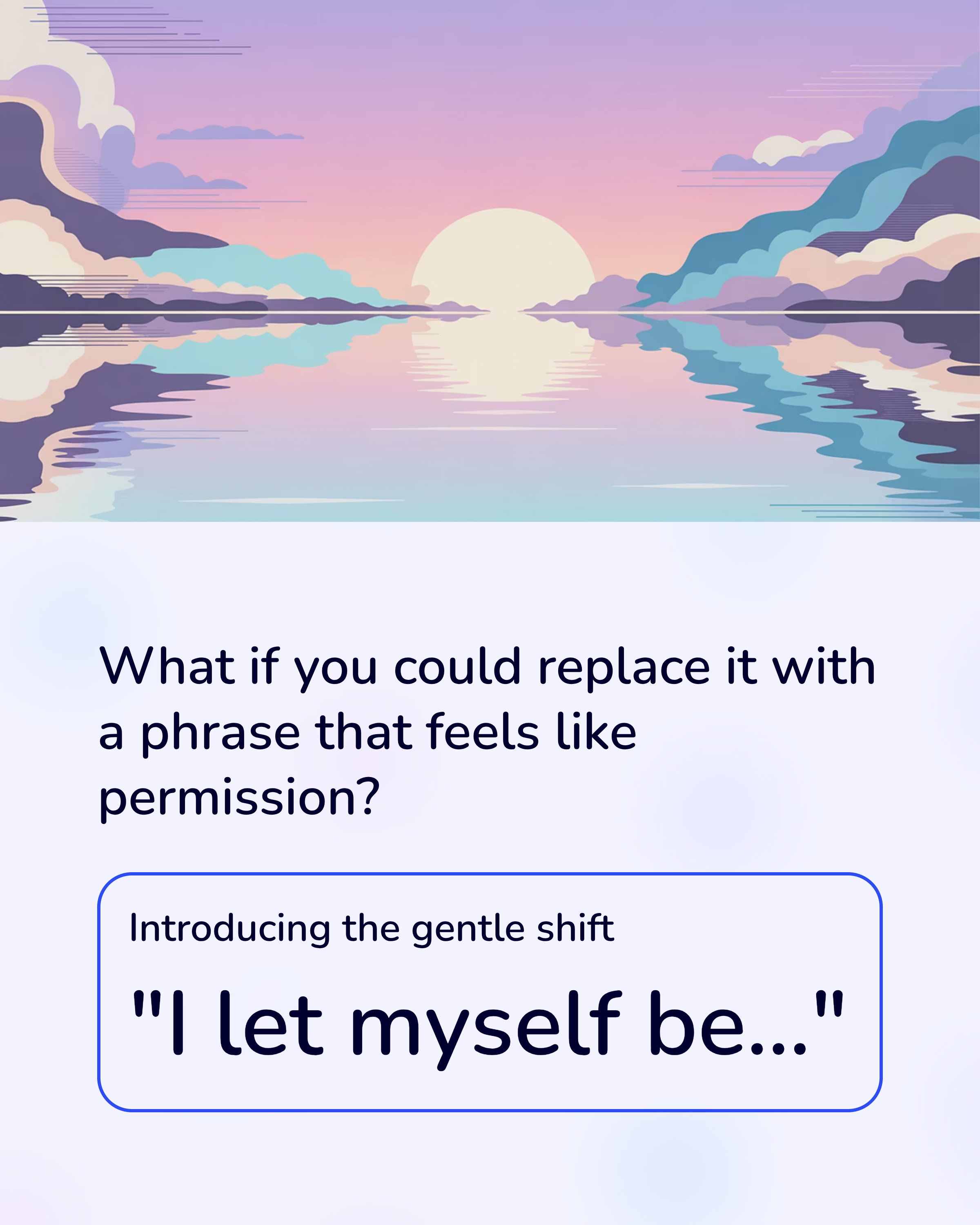“I have to” vs. “I let myself be”. A tiny language shift that creates peace, not pressure
How many times today have you thought, “I have to”?
I have to finish that report.
I have to make that call.
I have to cook dinner.
That simple, common phrase, “I have to”, carries a hidden weight. It feels like an order, an obligation, a burden placed upon you. It comes from a place of external pressure, and it often leaves us feeling resentful, trapped, and drained.
But what if you could change the entire emotional charge of that thought with just a few different words?
A client of mine was feeling completely overwhelmed by her endless list of "have tos." I gently asked her to experiment with a different phrase, and the shift she discovered changed everything for her:
“I have to…” to “I let myself be…”
Let's explore what this means.
Your Invitation to a Linguistic Experiment
This week, I invite you to become a detective of your own language. Just for a few days, notice when you use the phrase “I have to.”
Then, try the switch. Experiment with “I let myself be…” and see how it lands.
Instead of “I have to go to bed,” try “I let myself be rested.”
Instead of “I have to leave this party,” try “I let myself be finished for the evening.”
Instead of “I have to stop working,” try “I let myself be complete for today.”
Instead of “I have to cook dinner,” try “I let myself be nourished.”
This isn't about shirking responsibilities. It’s about changing your relationship with them. “I have to” comes from a place of pressure and obligation. “I let myself be” comes from a place of permission and self-care.
It transforms a task from a demand into a choice you are actively making for your own wellbeing. This tiny shift is a profound act of self-compassion. It acknowledges that you are the one in charge of your boundaries and your energy.
Your Path Forward: From Pressure to Permission
For my client, this reframe was a revelation. She said it made her feel peaceful, content, calm, and hopeful. The crushing weight of her to-do list didn't disappear, but her experience of carrying it fundamentally changed. She was no longer a victim of her duties; she was an active participant in crafting her own peace.
The journey from burning out to tuning in is paved with these small, conscious choices. It’s about moving from a life that feels like a series of demands to one that feels like a series of choices.
Changing “I have to” to “I let myself be” is a direct, practical step on that path. It is a gentle but powerful way to start reclaiming your agency and quieting the inner critic that fuels burnout.
If this resonates…
I invite you to try this linguistic shift for just one day. Pick one recurring “I have to” in your life and practice turning it into an “I let myself be.” Notice the difference it makes in your body and your mood.
If you find this concept powerful and want to explore more ways for shifting from pressure to peace, this is the work we do together. You don’t have to figure it out alone. If this speaks to you, please leave a comment below or send me a message. I’d love to hear how this shift feels for you.






